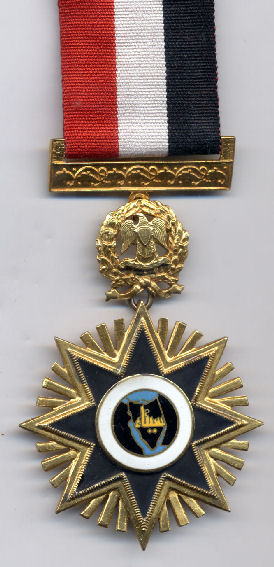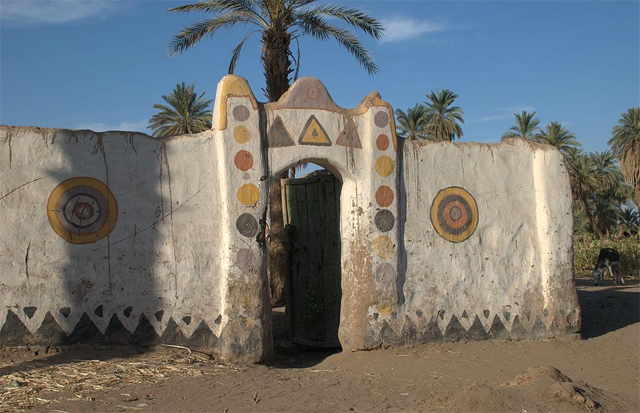On Monday last week, the president of Egypt awarded a Nubian man the highest military honor of the nation, the Order of the Sinai Star. Two different Middle East newspapers, Al Arabiya and Egypt Today, covered the story.

The President of Egypt, Abdel Fattah al-Sissi, awarded the medal to Ahmed Edris at a ceremony in Cairo. The Nubian soldier had come up with the idea of Nubians becoming code talkers for the Egyptian armed forces during the 1973 Arab-Israeli War, usually called the “October War” in Egypt and the “Yom Kippur War” in Israel. The award was for “great services for the homeland.”
Edris told Al Arabiya that he became involved well before the Egyptians launched their surprise attack on Israel’s positions in the Sinai Desert, which the Jewish nation had captured in the Six Day War of 1967 and still occupied in 1973. He learned that senior army officers were attempting to develop a new code of communications so they could relay decisions, orders, and instructions to troop commanders that would be secure from Israeli intelligence. Edris suggested that the Nubian language would be ideal for the code.

Edris said that Nubian is not written—it is only an oral language and in Egypt it is only spoken by the Nubian people. He told his army superiors that the language is divided into two major dialects, the Kunooz dialect spoken by the Dongola people of northern Sudan and the Fadika dialect, spoken by the Mahas tribe of southern Egypt and northern Sudan. His suggestion was received enthusiastically by his superiors and it was relayed up the chain of command to the president of Egypt himself, Anwar al-Sadat.
President Sadat contacted Edris directly; he told him his idea was excellent, but how should they proceed? Edris replied that the Nubians must be recruited as soldiers. So the army recruited 35 Nubians into the army and trained them to serve in the Signal Corps and another 70 to work as border guards who would send and receive the coded messages. No one other than the Nubians would be able to understand them and, of most significance, the coded communications would be incomprehensible to the Israelis.
Like the “code talkers” used in other conflicts by different armed forces, the strategy clearly worked. When Israeli officers intercepted the Egyptian communications, they were unable to understand what they were hearing. Words like oshriya, which meant “strike” and sai awi meaning “second hour” baffled them. Edris said to Egypt Today after the ceremony last week, “When I met the president, I told him that I kept the secret for four decades. Today I feel compensated for 40 years of military service.”

While Ahmed Edris, a Nubian from the Aswan area, is obviously proud of his service to his country, it is not clear how strongly his people were involved in the earlier military history of Egypt. The anthropologist Robert Fernea provided some clarity to the matter. During his fieldwork in the relatively isolated Nubian communities before the Aswan High Dam was finished in the 1960s, Fernea (1973) observed that “one cannot associate violence with this land and people …. This fundamental impression of the nonviolent, peaceful quality of Nubian life can only be made plausible if we understand what I have chosen to call the Nubian polity (p.17).”
Fernea explained that by Nubian polity, he meant the economy, ecology, kinship structure, values, and attitudes held in the isolated villages that were soon to be submerged by Lake Nasser. However, he also wrote that some of the more acculturated Nubians, whom he called “Arab Egyptianized Nubians (p.13),” did serve in the regular divisions of the Egyptian army. Mr. Edris appears to have come from that tradition.